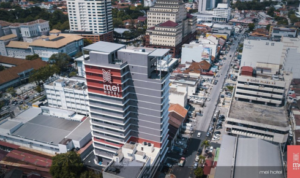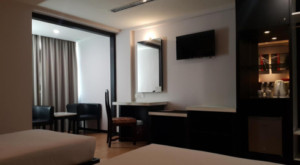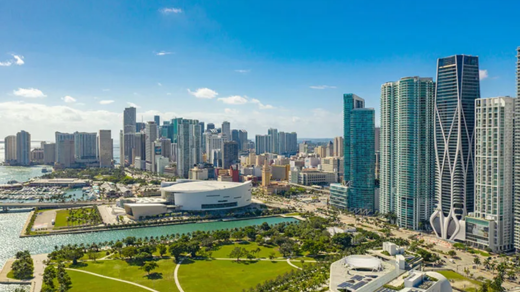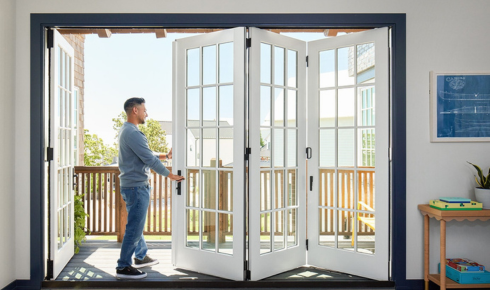Introduction: The Growing Demand for Healthcare Real Estate
In recent years, healthcare real estate has become a key area of interest for developers, with an increasing number of investors seeing it as a profitable and stable investment opportunity. As the healthcare industry grows, particularly in response to an aging population and shifting healthcare needs, there is a surge in demand for specialized medical facilities. For commercial real estate developers in Florida, this creates a unique opportunity to meet the needs of healthcare providers by developing properties such as medical office buildings, outpatient centers, and senior care facilities.
In this article, we explore the growing demand for commercial medical real estate, the factors driving this trend, and how developers can take advantage of the expanding healthcare real estate market.
What Is Healthcare Real Estate?
Healthcare real estate refers to properties specifically designed to meet the needs of the healthcare industry. These properties serve a range of purposes, from medical office buildings to outpatient clinics and senior care facilities. Some of the most common types of healthcare real estate include:
- Medical office buildings (MOBs)
- Outpatient clinics
- Hospitals and urgent care centers
- Surgical centers
- Assisted living and senior care facilities
What sets healthcare real estate apart from traditional commercial real estate is its specific infrastructure requirements. These properties often need specialized features, such as medical-grade electrical systems, enhanced air filtration systems, and accessibility for patients with disabilities. As healthcare trends continue to evolve, the demand for these types of properties is expected to grow, making it a strong investment area.
Why Healthcare Real Estate Is a Smart Investment
There are several reasons why healthcare real estate is becoming an increasingly popular investment choice:
- Aging Population: As the Baby Boomer generation ages, the demand for healthcare services has grown significantly. This has led to a need for more healthcare facilities, especially senior care and outpatient medical centers.
- Shift Toward Outpatient Care: Healthcare services are increasingly being provided in outpatient settings rather than inpatient hospitals. This trend has created a need for more commercial medical real estate, such as medical office buildings and outpatient care centers, to accommodate this shift.
- Healthcare Spending: The U.S. healthcare sector is one of the largest and fastest-growing industries. Increased healthcare spending leads to higher demand for properties that can house medical practices, specialty centers, and clinics.
- Long-Term Stability: Commercial medical real estate is often considered a stable investment due to long-term leases signed by healthcare providers. These tenants are typically large, well-established medical organizations that rely on consistent, specialized space.
Opportunities for Commercial Real Estate Developers in Florida
Florida, with its rapidly growing population and aging demographic, presents a prime market for healthcare real estate investments. For commercial real estate developers in Florida, the demand for medical facilities provides significant opportunities for growth.
1. Medical Office Buildings (MOBs)
One of the most lucrative segments of commercial medical real estate is medical office buildings (MOBs). These properties are in high demand as healthcare professionals, including doctors, specialists, and physical therapists, require office space in close proximity to hospitals or outpatient centers. As Florida’s population continues to grow, especially in cities like Miami, Orlando, and Tampa, the need for these medical office spaces will continue to increase.
2. Outpatient Clinics and Urgent Care Centers
The shift towards outpatient care has driven up demand for commercial medical real estate properties that can house outpatient clinics, urgent care centers, and specialty medical practices. In Florida, particularly in urban and suburban areas, there is a growing need for easy access to medical care, making these types of facilities a smart investment.
3. Senior Care and Assisted Living Facilities
Florida is one of the top destinations for retirees, and as a result, there is a constant need for senior care and assisted living facilities. Commercial real estate developers in Florida who specialize in the development of healthcare real estate focused on senior housing can tap into a long-term and growing market. These types of properties are especially lucrative in cities like Orlando and Miami, where there is a high concentration of retirees.
4. Surgical and Specialty Centers
Another area of opportunity in commercial medical real estate is the development of surgical centers and specialty care facilities. These facilities cater to specific medical needs, such as outpatient surgeries, rehabilitation services, and diagnostic testing. The increasing preference for these types of centers over traditional hospitals makes them a valuable addition to any developer’s portfolio.
Key Considerations for Commercial Real Estate Developers in Florida
Developing healthcare real estate presents unique challenges that developers must consider to ensure success:
- Regulatory Compliance: Healthcare facilities must meet stringent regulations, including building codes, medical facility standards, and zoning laws. Developers must ensure their projects comply with these requirements to avoid costly delays and issues.
- Specialized Infrastructure: Commercial medical real estate often requires specialized infrastructure, such as medical-grade HVAC systems, backup power sources, and accessibility features. Developers must work closely with healthcare providers and architects to incorporate these features into their designs.
- Location: The location of healthcare properties is crucial. Proximity to hospitals, transportation hubs, and residential areas is essential to ensure easy access for patients and healthcare providers. Commercial real estate developers in Florida should consider these factors when selecting sites for new developments.
- Tenant Stability: Many healthcare providers, such as large medical groups or hospitals, prefer long-term leases. Developers can benefit from this stability, as healthcare tenants often provide a reliable, long-term income stream.
The Future of Healthcare Real Estate
As the demand for healthcare services continues to increase, so too will the need for commercial medical real estate. For commercial real estate developers in Florida, this presents an exciting opportunity to invest in a growing sector with significant long-term potential.
Emerging Trends to Watch:
- Telemedicine: The rise of telemedicine has influenced the design of healthcare properties, with more facilities incorporating spaces for virtual consultations. This trend is expected to continue shaping the future of healthcare real estate.
- Patient-Centered Design: Healthcare facilities are increasingly focused on patient comfort and convenience. Commercial real estate developers in Florida will need to incorporate these features into their designs to meet patient expectations.
- Sustainability: Green building practices are becoming a key consideration in healthcare real estate. Energy-efficient designs, sustainable materials, and environmentally friendly construction methods are becoming more important in the development of medical properties.
Conclusion: Seizing the Opportunities in Healthcare Real Estate
The demand for healthcare real estate is expected to continue its upward trajectory, driven by an aging population, the shift toward outpatient care, and increasing healthcare spending. For commercial real estate developers in Florida, this presents an opportunity to diversify portfolios and take advantage of a market that offers long-term stability and growth.
Developers who focus on commercial medical real estate are well-positioned to capitalize on the rising demand for healthcare facilities. By understanding the unique requirements of healthcare properties and staying informed about emerging trends, developers can thrive in this expanding market.
















+ There are no comments
Add yours